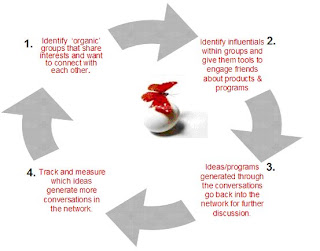
My fellow classmates argue that journalists, broadcasters and people from other areas of media are gravitating towards the field of PR. This, they argue is not dependent on a degree in PR, but on transferable skills. Experience is often times the key element in getting a job, but let’s not stray from the point. PR is struggling to get professional status and one such way to achieve this status is by demanding that employers hire qualified practitioners.
Just a scroll through the criteria for getting a job in PR; majority of the jobs offered require only good communication skills and being able to cope in social settings. Those are personal attributes. As my classmate Andy (see his blog) so proudly pointed out in his debate, ‘I have just been made Head of Communications and I have no qualifications in PR whatsoever.’ No doubt qualifications are necessary as PR Week reported a rise in hiring graduates in 2008. CIPR head of professional policy Dawn Chapman said: ‘The growth in graduate recruitment is a good reflection of the quality of PR degrees now available and graduates.’ This she says will combine practice and theory thus allowing new recruits to hit the ground running.
The CIPR states on their website that In addition to experience, a formal education in PR will help to ensure you are employing a well-rounded practitioner. It has not stated that a degree is essential. They also stress that for some roles such as press officer and media relations, experience is needed within the relevant sector to give the individual an opportunity to build up an extensive network of media and industry contacts. There you go, contacts are very important if you want to succeed in PR.
As the saying goes, ‘Different strokes for Different folks’. I know in my country, Jamaica, whether it be a PR job or a Secretary, it does help if you have a long lost uncle or friend to pull a few strings. It doesn’t matter how ‘bright’ you were at Uni.
A qualification in PR is both admirable and desirable but not necessary for success; but for the sake of not losing my mind along with £10,000; I am going to remain on the fence in this debate.
References
PRWEEK Frontpage: Rise in hiring of graduates in Pr industry http://www.prweek.com/uk/search/article/833902/FRONT-PAGE-Rise-hiring-graduates-PR-industry/ [Accessed March 31, 2009]
CIPR website A guide to recruiting PR and Communication Professionals http://www.cipr.co.uk/recruit/index.htm [Accessed March 31, 2009]








